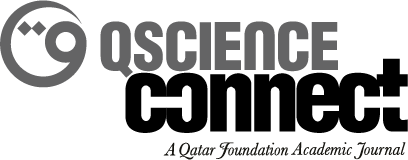-
oa Towards a more sustainable waste management in Qatar: Retrofitting mindsets and changing behaviours
- Source: QScience Connect, Volume 2017, Issue 1, Special Issue on Shaping Qatar’s Sustainable Built Environment-Part I, Apr 2017, 4
-
- 05 May 2017
- Previous Article
- Table of Contents
- Next Article
Abstract
Historically, the peoples of Arabia have had a strong affinity with and respect for nature, recognising that their life depended on a mutually supportive relationship. The intertwined connections between people and nature included a reverence for camels that provide a dependable mode of transport across the harsh desert landscape; a deep affection for the majestic falcons that soared high above vast sand dunes in search of prey and a great pride in the saluki dog breed as a loyal and skilful hunting companion. Through the generations, nomadic and static tribes in the Gulf have learned to coexist with their hostile desert environment, following nature's path to water and fertile plains. And, while this bond endures, with the advent of oil wealth, which has brought with it unprecedented rates of development, it is a connection that at best is under strain and at worst on a catastrophic path as much desired rapid development brings with it demands on the environment and incursions into the landscape as never before: dredging, which destroys sea grass plains and their associated wildlife; agriculture, which requires ever more water, thereby depleting natural aquifers and necessitating higher levels of energy-consuming desalination and skyscraper cities, which demand increasing amounts of electricity for lighting, air-conditioning and residential comfort. Furthermore, an ever-growing mound of waste generated by a swelling population and increased consumerism do not seem favourable for the GCC region.
What will it take to restore the human–environment balance? What needs to be retrofitted? Is it simply a matter of technical fixes, add-ons or replacements? Or is a more fundamental change needed? Do we need to retrofit mindsets, both individual and organisational, with a new set of overarching socially and environmentally driven principles that will allow Qatar to continue along its developmental path while enhancing its historical ties with the environment? In short, is it possible to design or retrofit our way towards a sustainable Qatar?
It is argued in this paper that not only technological solutions and retrofits but also an associated change in mindsets and behaviours at all levels and in all communities will solve the waste management problems faced by Qatar. Drawing on examples from individual, organisational and community-driven initiatives in solid waste management in Qatar and a survey or attitudes towards waste, in this paper, we illustrate the complexity of the task ahead, the obstacles faced and the need for a “retrofit” of mindsets and behavioural change in order to achieve a transformation in solid waste management in Qatar.


